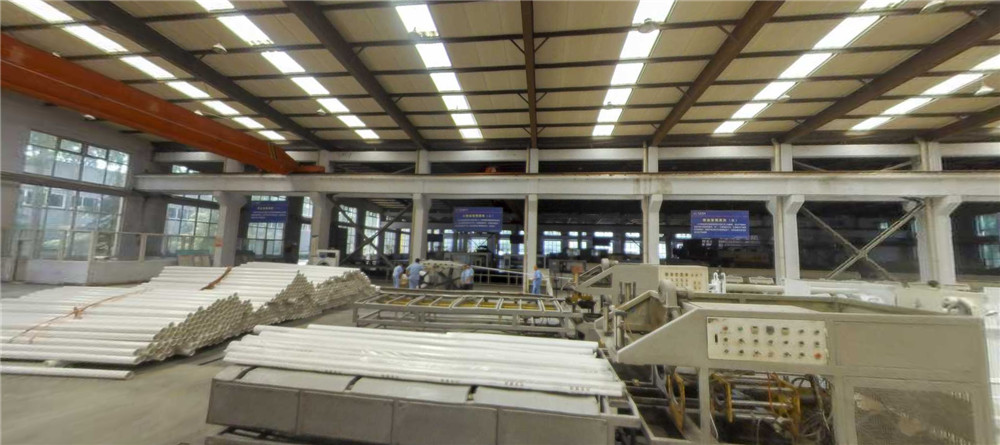Dùbh . 15, 2024 14:02 Back to list
hdpe conduit pipe
Understanding HDPE Conduit Pipe A Comprehensive Overview
In today's rapidly advancing world, the need for reliable and efficient infrastructure is more significant than ever. Among the myriad of materials used in construction and utility applications, High-Density Polyethylene (HDPE) conduit pipe stands out as an ideal choice for various reasons. This versatile material is widely utilized for electrical and telecommunications applications, providing a reliable solution for housing and protecting cables and fibers.
What is HDPE Conduit Pipe?
HDPE conduit pipes are made from high-density polyethylene, a type of plastic that possesses exceptional durability and flexibility. This material is known for its ability to withstand environmental pressures and resist the corrosive effects of the elements. As a result, HDPE conduit pipes are often chosen for underground installations where they will be subjected to moisture, chemicals, and physical stress.
Advantages of HDPE Conduit Pipe
1. Durability and Longevity One of the most significant advantages of HDPE conduit pipes is their durability. These pipes are resistant to a wide range of chemicals, UV radiation, and weather conditions, allowing them to last for decades without significant degradation. This longevity reduces the need for frequent replacements and maintenance, translating into cost-efficiencies for users.
2. Flexibility HDPE pipes exhibit remarkable flexibility, enabling them to bend without breaking. This characteristic is particularly beneficial in applications where the terrain is uneven or challenging. The flexibility also allows for easier installation, reducing the need for extensive trenching and excavation.
3. Lightweight Compared to traditional materials like concrete or metal, HDPE conduit pipes are significantly lighter, making transportation and installation simpler and less labor-intensive. This property not only expedites the installation process but also minimizes the overall project costs.
4. Smooth Interior Surface The smooth internal surface of HDPE conduit pipes reduces friction, enhancing the efficiency of cable installation and protecting the integrity of sensitive fibers or electrical cables. The smooth surface also minimizes the risk of blockages and allows for easier maintenance.
5. Cost-Effectiveness Although the initial investment in HDPE conduit pipes may be comparable to other materials, their long-term cost-effectiveness is evident. Their durability means fewer replacements, reduced maintenance costs, and lower installation costs due to their lightweight and flexible nature.
hdpe conduit pipe

Applications of HDPE Conduit Pipe
HDPE conduit pipes are employed in various applications across numerous industries. Some common uses include
- Electrical and Telecommunications HDPE conduit pipes are primarily used to house and protect electrical cables and communication lines, offering the necessary shielding from environmental factors.
- Water Management In addition to electrical applications, HDPE conduit pipes are also used in stormwater management systems, including drainage and venting purposes, due to their resistance to corrosion and ability to direct water flow.
- Underground Utility Installations HDPE pipes are often used in underground utility projects, providing a safe and durable environment for various services, including gas, water, and sewage systems. Their flexibility allows them to accommodate changes in terrain without compromising structural integrity.
Installation Considerations
While HDPE conduit pipes are relatively easy to install, considerations should be made regarding local regulations, installation techniques, and necessary fittings or junction boxes. Proper planning is crucial to ensure that installations comply with safety standards and best practices. Additionally, users must account for the necessary tools and equipment to accommodate the specific size and type of HDPE conduit pipe being used.
Conclusion
In summary, HDPE conduit pipes present a modern solution to the challenges faced by industries requiring reliable and efficient infrastructure. With their outstanding durability, flexibility, and cost-effectiveness, these pipes cater to a wide range of applications, from telecommunications to underground utilities. As the demand for sustainable and long-lasting materials continues to grow, HDPE conduit pipes will undoubtedly play a pivotal role in shaping the future of our infrastructure. Whether you're a contractor, engineer, or a utility company, understanding the benefits and applications of HDPE conduit pipes can lead to more informed decisions for current and future projects.
-
HDPE Natural Sheet: Durable, Food-Grade & Versatile Plastic Solutions
NewsAug.27,2025
-
Durable Glossy PVC Rigid Sheet | Premium High-Shine Panels
NewsAug.26,2025
-
Durable PP Rigid Sheet: Lightweight, Chemical Resistant Solutions
NewsAug.21,2025
-
PVC Grey Sheet for Extraction: Chemical Resistant & Durable
NewsAug.19,2025
-
Durable PVC Pipe Fittings for Plumbing & Irrigation Needs
NewsAug.18,2025
-
HDPE Steel Belt Reinforced Spiral Corrugated Pipe | High Strength
NewsAug.17,2025

